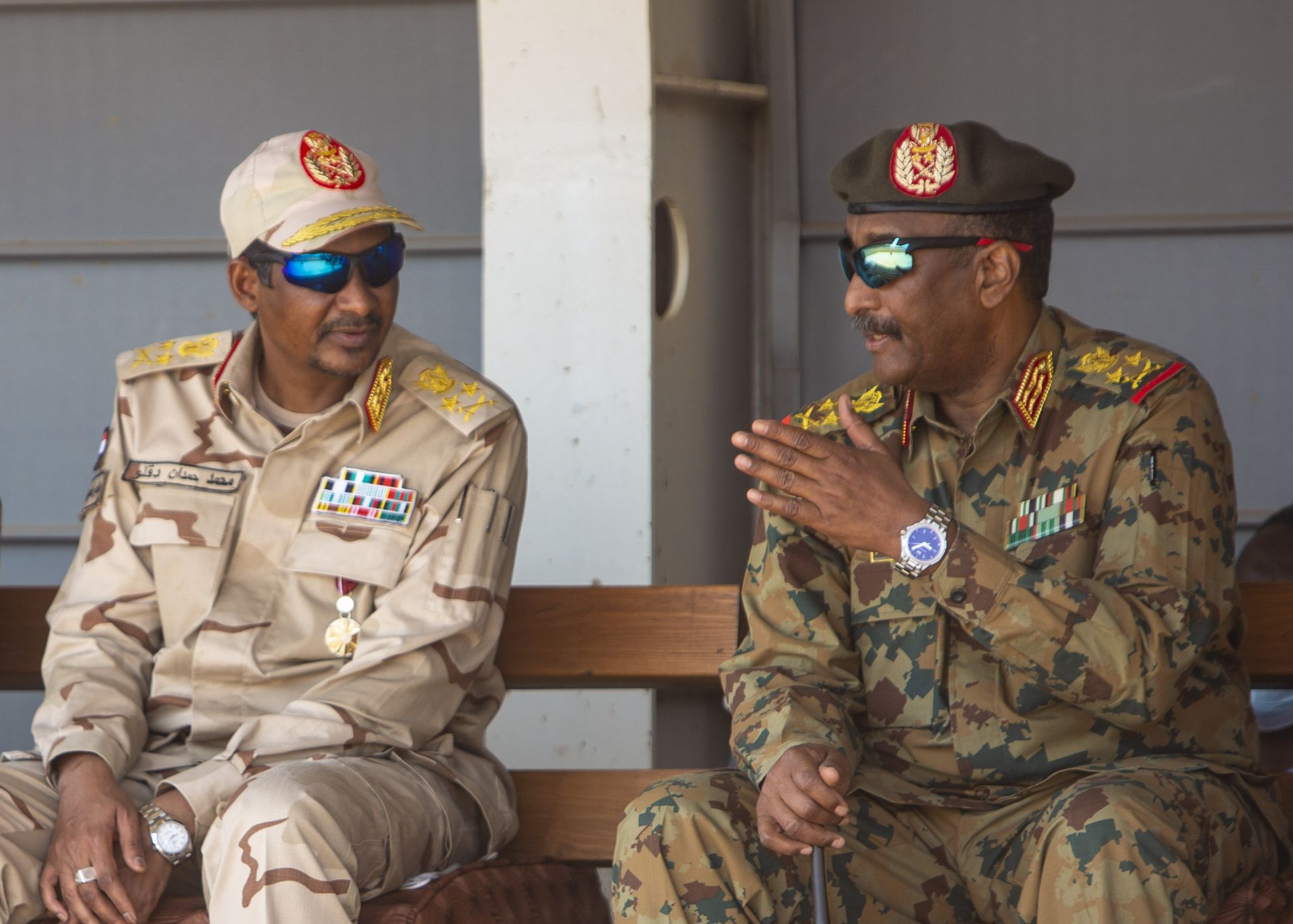After widespread protests led to the overthrow of Omar al-Bashir in 2019, Sudan seemed to be on track toward civilian rule. But in 2021, a coup ended the country’s brief respite from military dictatorship. Since then, power has been concentrated in the hands of two men — Lt. Gen. Abdel Fattah al-Burhan, the de facto leader of the country, and the ambitious Gen. Mohamad Hamdan “Hemedti” Dagalo, commander of the notorious paramilitary known as the Rapid Support Forces (RSF).
The relationship between the two rival generals had long been strained, but earlier this month, the tensions between them boiled over and a shooting war between the army and the RSF began on the streets of Khartoum.
“We all knew it was going to happen,” former journalist and activist Dallia Abdelmoniem tells New Lines magazine’s Kwangu Liwewe from Port Sudan. “The world should have paid attention to the Sudanese, when they were saying after the coup of 2021, that you cannot deal with these two men.”

“They have a tremendous sense of their right to rule.”
So far, attempts to mediate have failed, with neither side showing any sign of backing down. Many fear it could be the beginning of a new civil war.
“I think that it’s very hard to get inside the heads of the warring generals,” says Sharath Srinivasan, a political scientist at the University of Cambridge and the author of “When Peace Kills Politics: International Intervention and Unending Wars in the Sudans.”
“They have a tremendous sense of their coercive capacity and their right to rule,” Srinivasan says. “They have faced off in a way that makes it quite hard for one to retreat without the other taking advantage. We certainly are standing at a precipice.”
With the country teetering on the edge of that precipice, many in Sudan have made the painful decision to leave the country while they still can, Abdelmoniem and her family among them.
“People are just fleeing. They’re just leaving. I mean, I don’t think I have one family member left in Khartoum,” she says. “We’ve all gone off in different directions, but there’s no one left.”
Produced by Joshua Martin


